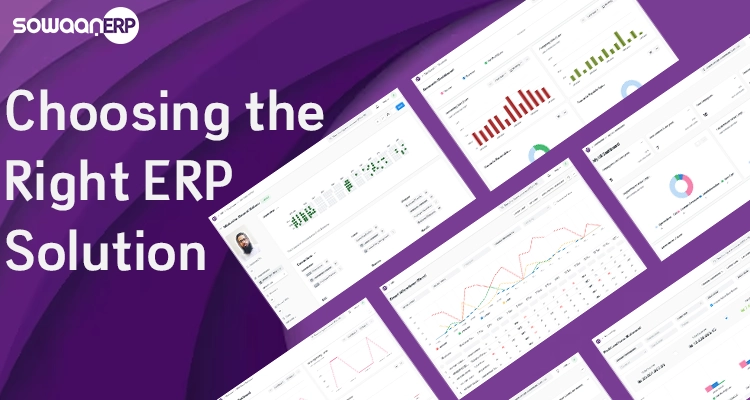How ERP Ensures Accurate VAT Reporting for Growing Businesses

In the case of expanding businesses, finances are further complicated by the increase in the number of transactions and the strict regulations involved. Value Added Tax (VAT) reporting is one of the most difficult topics. Failure in VAT calculations or filing may result in fines, audits, or even reputational risks. It is because of these challenges that a number of businesses are resorting to Enterprise Resource Planning (ERP) software. With vat lookup ksa ERP solutions, the financial processes are made more efficient and VAT reporting accurate, which makes the process easier and more reliable to comply with.
The significance of proper VAT reporting.
VAT is not merely another financial value; it influences the very cash flow of a company and its standing on compliance and its credibility with the regulatory bodies. Manual management of VAT can work in the case of small businesses. Nonetheless, when organizations expand, transactions are made between regions, suppliers and customers. Manual tracking is prone to error hence causing miscalculations and delayed submissions.
How ERP can Simplify VAT Compliance
1. Automated tax Calculation
The VAT calculations made using the ERP software are automatic according to the set tax rules and rates. The system instead of the manual input, uses the appropriate percentage on each transaction, be it sales, purchases or imports. This minimizes human error and accuracy of all financial undertakings.
2. Real-Time Data Integration
Expanding enterprises tend to have several departments, such as sales, procurement, inventory and finance. ERP brings together all these in one platform. This implies that the data on VAT is in real-time update as the transactions take place. Managers would not have to sort out information gathered in various sources, which usually leads to delay and errors in reporting.
3. Compliance settings by country
Depending on the country, VAT rules vary and often rules of compliance are changed. A powerful ERP solution is usually accompanied by local tax capabilities, such as: pre-configured VAT rates and reporting formats to comply with the local authorities. As an example, in areas such as the Gulf countries, VAT structures and reporting guidelines as required by government agencies are already in place within the ERP software.
4. Correct VAT Return Preparation
The best erp in ksa systems will automatically generate a VAT return, and all the data of relevant transactions will be pulled into structured reports. This will allow the finance teams to easily review, validate and file correct returns in time. Before submission, the system also alerts one about inconsistencies like an unpaid invoice or an incorrect entry.
5. Audit-Ready Records
Audit preparation is one of the biggest headaches to growing businesses. ERP software keeps full and traceable records of VAT related transactions. The invoices, journal entries, and all other entries are stored in a systematic way and retrievable on the spot. This does not only facilitate audits but it also gives transparency and accountability.
6. Easy Integration of the E-Invoicing
Tax administrators in most jurisdictions are moving to the digital tax compliance era with e-invoicing. This is facilitated by ERP systems which are directly integrated with e-invoicing platforms that ensure that all issued invoices comply with the VAT legislation. This removes the danger of non-compliant invoices and makes submitting to tax authorities easy.
Advantages of ERP Based VAT Reporting to Developing Companies
Efficiency:
Automation is time-saving and lessens administrative overhead on the finance teams.
Scalability:
As business grows, transaction volumes ERP will be able to manage without compromising accuracy.
Accuracy:
Automatic procedures reduce the mistakes that are always made in manual VAT processing.
Compliance:
In-built taxation rules make it compatible with changing legislations.
Cost Savings:
Businesses end up saving money by evading penalties and by enhancing efficiency.
Why ERP is a Good Early Investment by Growing Businesses
The small businesses are reluctant to use ERP systems despite their small size because they believe it is meant only to large companies. But the price of non-compliance, fees and ineffectiveness can be higher than investment in the ERP software. To young companies, early adoption of ERP ensures a stable growth in the future. It makes sure that financial processes such as VAT reporting grow in sync with business.
Conclusion
Correct VAT reporting is an important aspect of financial management in the case of growing businesses. Manual systems provide the best solution at the initial stage but once the transactions and regulatory requirements increase in complexity, it becomes less reliable. The VAT features offered by ERP systems are integration, automation, and compliance-readiness that can make VAT management effortless, errors-free, and timely.
ERP is not just a tool, but a business-strategic investment in compliance, efficiency and long-term business success that businesses seeking to expand without the pressure of financial mismanagement should consider.
- Art
- Causes
- Crafts
- Dance
- Drinks
- Film
- Fitness
- Food
- Games
- Gardening
- Health
- Home
- Literature
- Music
- Networking
- Other
- Party
- Religion
- Shopping
- Sports
- Theater
- Wellness


